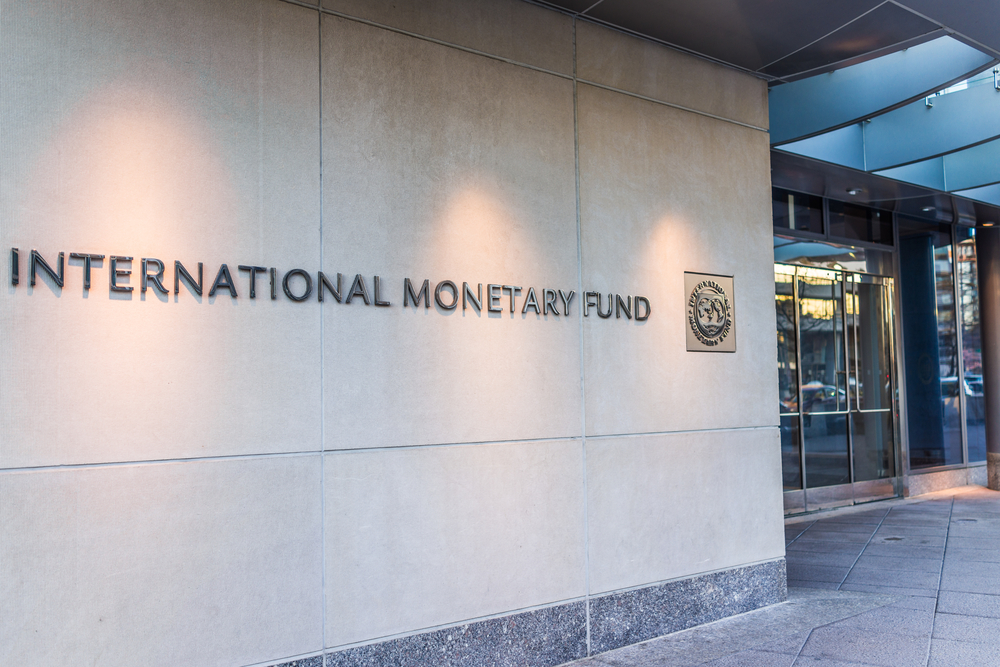
IMF Says Bitcoin Is A Reality
Gita Gopinath, chief economist at the International Monetary Fund (IMF), has joined the list of financial personalities who weigh in on bitcoin. This time he did so during his participation in the Bloomberg New Economy Forum “The Rise of Digital Money”, which took place virtually on April 21, 2021.
In the executive’s opinion, cryptocurrencies are a reality that cannot be denied and, therefore, agreements are needed to achieve their regulation. Gopinath was accompanied on this panel by Raj Dhamodharan, Executive Vice President of Digital Assets at MasterCard and Hester Peirse, Commissioner of the US SEC. The discussion was moderated by Bloomberg New Economy Editorial Director Andy Browne.
The panel agreed that a cooperation framework must be created to regulate the functioning of digital currencies , as is done with traditional financial markets globally. According to them, this would regulate the processing of personal data and better combat cybercrime .
Emerging economies take risks to adopt cryptocurrencies
During his speech, Gopinath recalled how some emerging economies are taking risks to try to adapt to the use of cryptocurrencies . He also mentioned countries that, instead of adapting, outright ban cryptocurrencies. This is the recent case of Turkey, which made the decision to ban the use of bitcoin in its territory , in the midst of the crisis that its currency is going through: the lira.
From Gopinath’s perspective, cryptocurrencies allow for a certain ease for money to move digitally, but that ease also allows one to evade the rules imposed by the state .
“Legal frameworks have not yet been developed to deal with these types of capital flows,” Gopinath explained. She added that, according to her, that is why “some countries, especially emerging markets, are more cautious about using cryptocurrencies.”
Central banks are not losing their monopoly
Gopinath refuted the claim that central banks are losing their monopoly power due to private currencies. He ruled out that possibility of cutting, as he recalled that private money has coexisted with public money, which is cash for as long as possible. She took the opportunity to say that, although she does not deny the usefulness of bitcoin and other cryptocurrencies, she does not see them as competition from legal tender.
To be a legal currency it needs to have a stable value. So I would say that many of the cryptocurrencies out there cannot even be included within the definition of money. Cryptocurrencies are very speculative investment assets and that’s okay.
China advances digital currency for cross-border payments
On the other hand, the economist recalled that China is working with several of its trading partners to establish a cross-border payment system based on a digital yuan, which is not harmful to the world economy, as long as it does not support any type of nefarious activities. “There is also a need for this type of technology to send money to other countries that are paying too much in terms of commissions,” he said.
The economist believes that cryptocurrencies offer advantages for cross-border payment. However, he added that it is the responsibility of the international community to ensure that the rules and regulations are established so that the use of these cryptocurrencies complies with the laws in force.
To conclude, with this intervention, Gopinath reiterated what the IMF has been saying in terms of the fact that the existing laws on digital currencies are not clear . In short, almost 80% of banks could not legally issue central bank cryptocurrencies, without the approval of new legal regulations.
As CriptoNoticias reported in January 2021, the multilateral body maintains that, in the case of CBDCs, already raised in many countries, their issuance is not a merely technical detail, since all issuance of money “is a form of debt for the bank central”.


